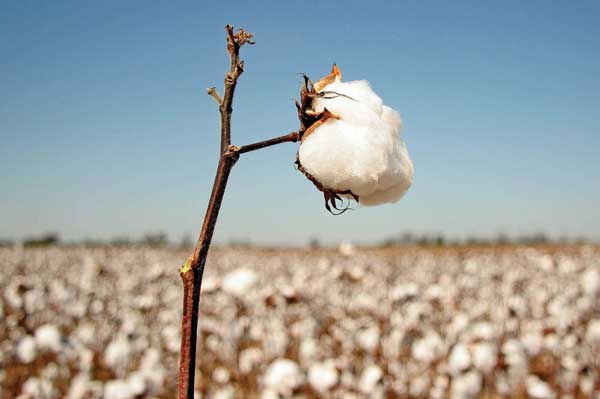April 3, 2012

The House Agriculture Committee conducted the third of four 2012 farm bill field hearings in Jonesboro, Ark., to enable its members to hear first-hand how farm policy is affecting farmers before the next farm bill is developed.
The hearing was hosted by Committee Chairman Lucas (R-Okla.) and Committee Member Crawford (R-Ark.). They were joined by Committee members Neugebauer (R-Texas) and Stutzman (R-Ind.).
Eight of the 10 witnesses were multi-row crop producers, and included cotton producers: Dow Brantley, England, Ark., and Randy Veach, Manila, Ark.; Walt Corcoran, Eufaula, Ala; Tim Burch, Newton, Ga; Bowen Flowers, Clarksdale, Miss.; Paul Combs, Kennett, Mo.; and John Owen, Rayville, La.
With cotton as their primary focus, the testimonies of Corcoran and Flowers emphasized the need for completion of a farm bill this year as those involved in production agriculture make long-term investment decisions based on federal farm policy.
It was noted that the combination of the marketing loan, direct payments and counter-cyclical payments has provided a good safety net, and in recent years, has required minimal federal spending.
The need for sound crop insurance and risk management tools in new farm legislation was conveyed along with support of the NCC’s innovative Stacked Income Protection Plan. Known as STAX, that revenue-based crop insurance product would replace the direct and counter-cyclical payments for cotton, thus directly addressing one of the programs found to be at fault in the World Trade Organization dispute with Brazil.
Corcoran testified that, “In the opinion of the U.S. cotton industry, this structure (STAX) will best utilize reduced budget resources, respond to public criticism by directing benefits to growers who suffer losses resulting from factors beyond their control, and build on the existing crop insurance program, thus ensuring no duplication of coverage and allowing for program simplification.
Crop insurance
“I strongly urge that crop insurance not be weakened during this farm bill. In today’s environment of volatile prices and high input costs, effective risk management has never been more important.”
Flowers implored the Committee not to impose any further restrictions on payment eligibility including lower limits or income means tests in the 2012 farm bill saying “effective farm policy must maximize participation without regard to size or farm income.”
He reminded the Committee that the 2008 farm law contained significant changes with respect to payment limitations and payment eligibility – and included the most comprehensive and far-reaching reform to payment limitations in 20 years.
Flowers also noted that while he was a diversified producer, “it is important to note cotton production is the most significant economic driver in my area. It means jobs on the farm, in gins, warehouses and on through the production and processing cotton cycle.
“The spin-off impact on rural communities in the Delta and other regions for input suppliers, equipment dealers and others is also significant. Even a moderately — sized city such as Clarksdale, Miss., is very dependent upon agriculture. Therefore, a viable cotton farm policy is especially critical to our rural economy.”
Both producers also called for continued assistance for U.S. textile mills (introduced in the 2008 farm bill) along with adequately funded export promotion programs, including the Market Access Program (MAP) and Foreign Market Development (FMD) Program, which are important in an export-dependent agricultural economy.
Chairman Lucas stated, "As we visit with producers from different regions of the country, the overriding message we're hearing is just how important it is to provide a choice of policy options in the next farm bill. In order for our farmers to be successful and continue to provide the quality food and fiber that we all expect and enjoy, we need to give them the necessary tools to manage risk no matter what type of crop they're growing.”
Lucas said he recognized that even within commodities, different programs work better for different regions.
“That’s why it is vitally important that the Commodity Title give producers options so that they can choose the program that works best for them,” he said.
“I also am committed to providing a strong crop insurance program. Now, I know that crop insurance — while a valuable tool for many producers — doesn’t work as well for producers down here. That’s why offering an array of programs is important and why we must work with the Risk Management Agency to improve crop insurance products for rice, peanuts and other crops that do not have higher buy-up levels.”
The Committee’s next farm bill hearing is scheduled for Friday, April 20, at 9 am CDTin the Magouirk Conference Center in Dodge City, Kan..
You May Also Like




